Political Drag
drag performers
standing up for their right to exist as they are without conforming to society’s expectations.

drag performers
standing up for their right to exist as they are without conforming to society’s expectations.
ALICE was born out of the desire to create a space for women in CEE to connect, support, and empower one another to successfully complete their degrees.
PAGE 3
Ban
the U.S. has the highest maternal mortality rate in the developed world
PAGE 4
there is a distinct difference between functionality of a space and designing your space to make it photo worthy.
PAGE 6
Ramey discovers other women who have been dismissed by medical professionals and are told the classic line, “It’s just hormones”
PAGE 10
This summer, I read every single edition of Attune since 1994. Ok, well… read might be an exaggeration. But I did spend time going through all 50+ editions, perusing “My March on Washington” (Spring 2017), “Teaching Women “The Business”” (Spring 2007), and “Research Suggests the Glass Ceiling Endures” (Fall 1995), just to name a few. To help make all past editions of Attune accessible to our readers, I helped the University Archives digitize the past editions of Attune.
I have been a student worker with the Women’s Center since spring of 2019. In my time working here, I have authored articles as well as co-edited several editions of Attune. This summer, however, my involvement looked a little different. As I helped sort old files in our office, I realized that the center has paper copies of all old versions of Attune since its first edition back in 1994. Our office decided that we needed to make these pieces of our history available to the public, so we reached out to the University Archives and planned to digitize all Attunes. This project required scanning every individual page of all the editions of Attune and skimming through articles to attach keywords and descriptions to each edition. It was an interest-
ing experience getting to see what students on campus cared about for the last 20-25 years and to see the themes that persist throughout.
One of the first things I noticed was recurring topics and themes. Some include sexual assault on campus, interpersonal violence, body image, women in politics and other leadership positions, women’s history, health, sexism, and campus news and resources. It was interesting to see that today, we as a campus community still have a lot of the same interests and passions as those who wrote for Attune almost 30 years ago. Attune has also had some recurring columns, including a section featuring the accomplishments of women on campus and a section on books which included recommendations, reviews, and books recently added to the Women’s Center’s library. Personally, I would love to see these columns return to Attune in some form.
I was also amazed at the enormous number of people who have contributed to Attune. As I worked through all the Attunes, I made a list of everyone who ever wrote for Attune. Attune has had over 200 contributors since 1994! Many of the contributors have authored multiple articles across several editions with some contributing as many as 10-15 articles. I had no idea that so many people had been involved through the years.
Another observation I made during my work was that Attune has started to return to the types of content featured
RETROSPECTIVE continues on page 13
In the early morning hours of June 28th, 1969, several plainclothes officers began a raid on the gay dance club The Stonewall Inn, in an attempt to apprehend that night’s over 200 patrons. Once the raid spilled into the streets, violence erupted between the police and the patrons, as well as the other residents of Greenwich Village, the Manhattan neighborhood where the bar is located. Trans women and drag performers led the charge during that weekend’s protests, standing up for their right to exist as they are without conforming to society’s expectations.
At the time of the Stonewall Uprising, public displays of homosexuality, which included crossdressing, were illegal in New York, so trans women and drag performers were the most targeted by law enforcement. When the drag performers and trans women, like Marsha P. Johnson, Stormé Delarverie, and Sylvia Rivera, fought back against the police that June weekend, they set themselves and the entire artform of drag at the forefront of queer politics, which has held true to this day.

In the 53 years since the Stonewall Uprising, the LGBTQIA+ community is more widely visible and accepted, thanks in large part to television shows like RuPaul’s Drag Race. That doesn’t mean, however, that bigotry has been erased. On our own campus, the LGBTQIA+ community has been under attack because of a conservative politician’s reaction to a drag show that took place at the Backdoor Playhouse in August.
RuPaul Charles, world-renowned drag queen and host of RuPaul’s Drag Race, shared in an interview with Salon, “‘The whole point of drag is that we are not separate from one another; each of us are in drag…It’s about the identity that each of us assigns to ourselves, and that’s why it’s political…That’s why it ruffles so many feathers, because a shape shifter — drag queen — is telling you you’re not who you think you are.’” In other words, because drag as an artform blurs and crosses gender lines and rejects the idea of a gender binary, it becomes a political medium, and people are now beginning to realize that and take advantage of it, for good and for bad.

Much like its host, Drag Race and its contestants have never shied away from drag’s political connections. Season 8 contestant Bob the Drag Queen told the story of his arrest for protesting marriage inequality in New York, along with Season 10 contestant Miz Cracker. Nearly every contestant from the show uses their online platform to encourage their followers to get inolved politically and vote.
Some Drag Race contestants have even pursued careers in politics. Season 5 contestant Honey Mahogany was elected in 2021 as the Chair of the San Francisco Democratic Party, making her the first transgender person to serve as Chair of any local Democratic Party, and one of the highest ranking transgender officials in the country.
Newer seasons of Drag Race have even included political leaders as guests. Twice now, Speaker of the House Nancy
...because drag as an artform blurs and crosses gender lines and rejects the idea of a gender binary, it becomes a political medium, and people are now beginning to realize that and take advantage of it, for good and for bad.POLITICS ARE A DRAG! continues on page 13

 Kathryn Rubino
Kathryn Rubino
Of the more than 200 student organizations offered at Tennessee Tech University, there is a new student organization dedicated to supporting women enrolled in or interested in Civil & Environmental Engineering (CEE). All Ladies in Civil Engineering, or simply ALICE, was born out of the desire to create a space for women in CEE to connect, support, and empower one another to successfully complete their degrees. Initial club development efforts, such as creating the name of the group (alumna Mackenzie Martin), designing the logo (alumna Macie Waldroup), and identifying its need (Professor Tania Datta and graduate student Maci Arms) occurred during the Spring 2021 semester. The group became an official student organization in December 2021 and has since hosted a variety of events to help members develop both personally and professionally.
During its first year, ALICE hosted a fall hike, a spring picnic, and two breakfast nights. In March 2022, the group partnered with the Society of Women Engineers to host a screening of the film Picture A Scientist. In September 2022, the group hosted a tie-dye and karaoke night that encouraged all members to connect and build friendships at the beginning of the fall semester. These events provided an opportunity for the women in CEE to connect socially and informally mentor one another. These social events are also attended by women faculty members such as Dr. Tania Datta, Dr. Julia Avera, and Dr. Jane Liu who are committed to supporting all students in the department. Regarding these events, ALICE Vice President Caroline Hitchcock notes that “ALICE has made an incredible impact on my involvement at TTU. Being a part of this student orga-
nization has increased my capacity as a student, mentor, and leader. I have also seen growth in my connection to the campus community due to the ALICE events. Overall, the chance to be a part of ALICE has been the highlight of my time as a student.”
ALICE members also realize that a love for engineering can start at an early age. Young people, especially young women, know they want to make a difference in the world, and they may not realize that engineering is a powerful way to do that. Through outreach efforts, the members of ALICE strive
the Assistant Director of the The Career Development Center at Tech. Finally, the group has also hosted guest speakers to share their experiences and offer mentorship, such as professional engineer and CEE alumna Lindsay Bryant who spoke to members during the Spring 2022 semester.
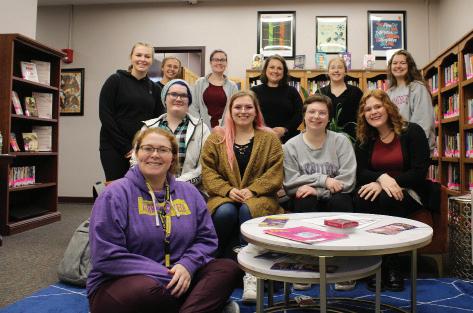
During the first year as a registered student organization, ALICE has provided an environment for the underrepresented women in CEE to connect and support one another. Kathryn Rubi, ALICE Social Media Coordinator notes “I never thought I had the capability to
to show others what is possible. During the Spring 2022 semester, ALICE led an interactive watershed activity at the Engineering a Future Camp and a microplastics activity at the Oakley STEM Center. In addition to the group’s social and outreach events, ALICE has hosted resume and career fair workshops with the support of Sonja Higgenbotham,
be the mentor type but having the support of the ALICE officers allowed me to find my strength in it.” As the organization continues to grow, ALICE officers hope to better assess how the group is affecting the success and retainment of CEE female students, to extend outreach efforts, and to continue to empower the women in CEE.
Iwoke up on June 24, 2022, expecting it to just be a normal Saturday. The first text I saw was from the Human Rights Campaign. It stated, “From HRC: The Supreme Court has overturned 50 years of established precedent under Roe v. Wade., threat ening access to abortion & health care services across the country. This decision will endanger lives. Reproductive rights are LGBTQ+ rights-- we can’t stop fighting.” I woke up from a dream into a living nightmare.
can tell you it is not mine because I feel more in danger than I ever have in my life, and I am not the only one who feels this way.
My first immediate thought was, “What if I experience a life-threatening pregnancy?” At that point I would have a few options: risk criminal prosecution for my doctor to try to save my own life, try to travel out of state to find care or take the chance of dying just to obey the law. The thought of dying at the age of 24 due to not having a choice is scary to think about, and what about rape? What if someone was raped, let’s say at the age of 13? What about my future children? How would I look at them and say, “I’m sorry this happened to you, but you have to raise this child,” knowing that they themselves are still children? The word that came to my mind while thinking about all of this was “petrified”.
Many people propose adoption as an alternative to abortion, but this solution has drawbacks. According to AdoptUSKids, there were over 407,000 kids in America’s foster system in 2020. These 407,000 kids may or may not ever find a permanent home, and many age out without ever finding a stable family. Plus, if you think about it, adoption is an alternative to parenting, not to pregnancy and forced birth.
You might think that Tennessee has exceptions in place for the life of the



birthing parent or when the pregnant person did not consent to sex, such as in rape and incest. That is not the case. Tennessee’s full abortion ban, called the Human Right Protection Act, has no exceptions after 6 weeks. The only concession it makes is a legal defense for doctors who perform life-saving procedures, but that defense cannot be used until after the doctor has been charged. Many major news organizations have reported on the ramifications of the bill’s lack of exceptions. This is especially scary because the U.S. has the highest maternal mortality rate in the developed world according to the analysis performed by The Century Foundation using data from the CDC and World Health Organization. The Commonwealth Fund examines the same data to demonstrate that maternal deaths are on the rise in the U.S. even though most of these deaths are preventable. This data does not account for how other genders, like transmen, genderqueer, and gender nonconforming people, experience pregnancy, so we know very little about the risks for this subset of the birthing parent population. Even though the anti-abortion movement considers itself pro-life, whose life is being protected? I
When I start to get overwhelmed, I try to remind myself that there are still legal options for me if I am facing an unexpected or dangerous pregnancy, and there are resources out there that can help me decide how to make this very personal decision. Planned Parenthood continues to provide care and support for people to control their reproductive futures. No matter how we feel about abortion itself, the pregnant person is facing a very difficult, personal situation and deserves compassion, love, and support for whatever path they choose for the future.
Fisher, B. (2021, December 19). Banning abortions only makes them more dangerous. MSN. Retrieved November 18, 2022, from https://www.msn.com/en-us/news/us/ banning-abortions-only-makes-them-moredangerous/ar-AARXufP
Taylor, J., Bernstein, A., Waldrop, T., Smith-Ra makrishnan, V., & Batstone, K. (2022, April 26). The worsening U.S. maternal health crisis in three graphs. The Century Foundation. Retrieved November 18, 2022, from https://tcf.org/content/commentary/ worsening-u-s-maternal-health-crisis-threegraphs/?agreed=1
Tennessee’s full abortion ban, called the Human Right Protection Act, has no exceptions after 6 weeks.
An Opinion Piece by Paige Powers
Autumn Carruthers, Digital Media,
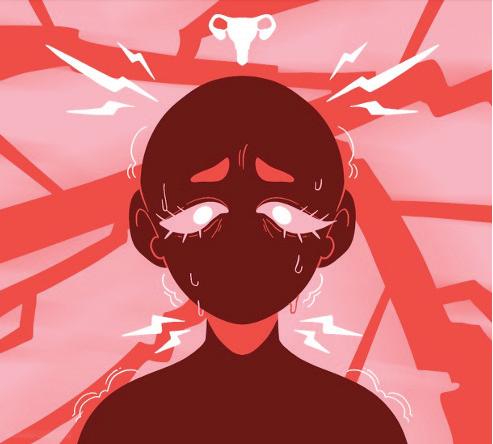
“The piece is supposed to be symbolic and represent a sharp, pained fear by the actions of the overturning.”
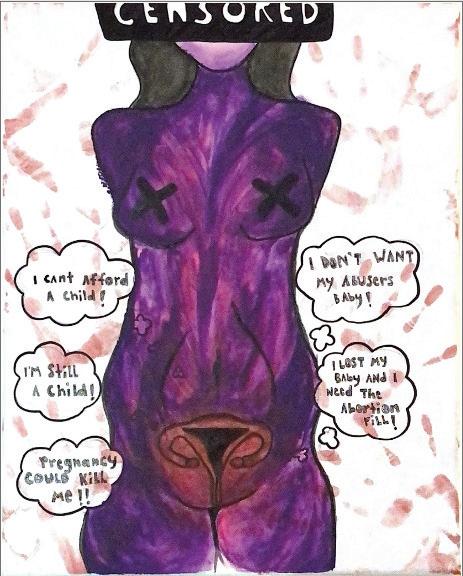






Laundry – believe it or not - has recently switched from tasks on a list, to a form of art in our society. It has taken a distinct spotlight, predominantly through social media, such as Tik-Toks of laundry detergent in aesthetically pleasing glass bottles, accompanied with dryer sheets stored inside a perfectly sized wooden tray. And of course, these containers are in a beautifully cleaned laundry room, with a white shiplap sign that reads “Laundry Room” in a fancy cursive font. We think to ourselves, “This will be my house one day” or we save it on Pinterest, telling ourselves we’ll get to this level of cleanliness “later,” whenever that actually is. Sure, glass bottles filled with Tide might bring you joy, and who doesn’t love coming home to a clean house? But, the way housework is being reframed in our world today is becoming less about functionality, and more about the glorification of domestic labor.
Domestic labor has not been idolized to this level in decades. Suddenly, as if we were living in the 1950s, it is expected that women must keep everything in order, clean, and most importantly, beautiful, to be a good whatever. A good mother. A good wife. A good person. What is worse, these ideologies come from simply nothing more than lies. We envy the social media influencers whose neutral, all-natural cotton clothes are washed with organic laundry detergent from antique mason jars. However, former “mommy blogger,” Josi Denise, told Insider that most of her posts like these were “fake nonsense.” She explained that blog posts would not get shared unless they were consistently positive. And if they are not being shared, no
money will be made from them. What’s worse, Denise shares that she would be so caught up in trying to get her kids to smile, make everything in the background look perfect, and get all the necessary brands in a picture, she would forget to enjoy moments with her kids and felt like she missed a substantial portion of their childhoods.
Furthermore, author and licensed therapist KC Davis unapologetically wrote in an Instagram post last October, “Laundry is a functional task, and its function is to provide you, a person who deserves to be clean and comfortable with clean clothes to wear…You do not need aesthetic laundry rooms and chic glass containers to have a valid laundry process. Is there anything wrong with being someone that likes that? Of course not! But let’s call it what it is: a hobby.” In short, there is a distinct difference between functionality of a space and designing your space to make it photo worthy. It is a tricky balance to decide within yourself, “Does this organization make me happy?” or “Am I happy that other people will validate me and what I’m doing?” Josi Denise also wrote that a lot of influencers do not try to appear perfect just for the money, but also from the external validation.

Although it is oddly satisfying, the “art of laundry” is simply nothing more than the glorification of domestic labor. Domestic labor, typically unpaid and underappreciated, is about functionality. It is okay to want aesthetically pleasing interior décor; it is not okay to believe that you need to live up to unrealistic standards to be good enough- a good enough partner, parent, child, or just person. These standards for laundry and other domestic labor typically stem from falsehoods and staged photos, and you can still have clean clothes regardless of if your detergent is in its original bottle or not.

Housework is being reframed in our world today. It is becoming less about functionality, and more about the glorification of domestic labor.

Ever since I was little, music has moved me. In elementary school, I sang and played guitar in a school music group. I even joined the choir for the first year of middle school. Even now, I am a camp counselor, and my camp name is Songbird. I also love going to concerts, hearing the music from artists I listen to, and feeling the adrenaline that comes with the energy of the performance. I have always liked to feel emotions from music, and it has always just connected with me in like nothing else.
I listen to such a wide variety of genres: country, pop, rock, indie, musicals, Disney, and many more subgenres. I have a variety of playlists I or others have made that I listen to that evoke different emotions. I have a Women Empowerment playlist that I listen to when I want to feel motivated and uplifted. I have one that I listen to when I want to feel like the main character in my life and one that embodies my personality, but I also have others that have deep meaning such as my anxiety, body image thoughts, and heartbreak. Music allows me to express how I am feeling or what I want to feel and regulate my mood. It also allows me to understand how I’m feeling sometimes by finding just the right playlist that fits my mood and really relates to the music.
Music is a major expressive outlet that aids me in being emotionally vulnerable. You can learn so much about a person just by what they are listening to. Often, song lyrics can say
more than my words can. When I listen, I pay close attention to the story the song is telling through its lyrics and how I relate to it. I can often get caught up on a song and listen to it on repeat for a long time. For me, music is a great way to cope with my emotions. I find songs that relate to how I am feeling and listen to them. It makes me know that I am not alone in how I feel, and that others feel this way too. Often, I will throw on my headphones and blast music while I go on walks or just to drown out everything happening around me. It is healing to
just let my emotions out through the music I listen to. It can relieve my stress and stop intrusive thoughts.
Some of my favorite songs make me feel powerful. These songs in particular have impacted me greatly by bringing me joy or relating to my insecurities. “Happy Girl” by Martina McBride is one song that I have listened to my whole life, and it basically is a strength song for me. “Hero” by Mariah Carey is a song I first listened to at Girl Scout camp, but there we call it the Shero song, because we use it as a woman’s empowerment song. We use it to influence our campers to stand up and be strong in who they are and find a Shero within themselves.
Others help me deal with my struggles. I have always fought body image issues, my weight, and anxious thoughts. Sara Kays released Camera Shy in 2020 and two songs really stood out to me: “Smaller Than This” and “I’m Okay Though,” which discuss constantly wanting a smaller body and hiding negative thoughts by faking happy feelings. I listen to songs like these when I need to feel that I am not the only one who feels trapped in my own body and headspace and that someone else knows how I feel.
Music can be empowering and a safe space. It is also a coping mechanism that really helps. Finding myself in the lyrics and drifting away from everything is the thing I need sometimes to feel myself again. Take the time to create your own mood playlists and find what really speaks to you. It can feel so healing.
You can learn so much about a person just by what they are listening to. Often, song lyrics can say more than my words can.
When I listen, I pay close attention to the story the song is telling through its lyrics and how I relate to it.





 Featuring Lillian
Bee’s Wings, Lillian Cicero, Photograph
World Upside Down, Lillian Cicero, Photograph
Featuring Lillian
Bee’s Wings, Lillian Cicero, Photograph
World Upside Down, Lillian Cicero, Photograph


some things I remember not his face not what happened
just the whoosh of air surprising against my skin as he pulled my dress off before I’d even realized he had stepped through the door after me the cool slick laminate floor of the bathroom against my nakedness the brightness of the light florescent his hands pulling my arm to bring me out again the way he felt like burning the sharp edges of my knees heaving myself inside out the next day
and the feeling before at the wedding, watching the sun set over the Pacific, like being full, brimming with happiness like I was beautiful, like I was loved, so I let him take me for a drink before going home because I didn’t want that feeling to empty me out again alone.
not his face
he could walk by me tomorrow on the street knowing how the inside of my mouth tastes and I would not know him
he is a blank space blotted out in my memory not because I have forgotten because I watched it all through bubbled glass a fish in a fishbowl forgotten on a high shelf because it must have been not me, just some other girl with my name.
I remember the burning
seeping from a deep crack in the earth it eats houses birds trees asphalt men I cannot be stopped I plunge screaming to make great geysers of the sea.
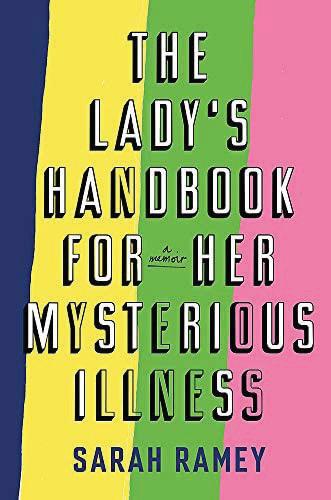 A Review by Aislynn Martin
A Review by Aislynn Martin
A new medical memoir, “The Lady’s Handbook for Her Mysterious Illness”, from author Sarah Ramey, is now available in the Women’s Center Library. This book is a story about Ramey’s personal battles with being misdiagnosed, mistreated, and dismissed. While struggling with her health personally, from UTI’s to full-blown sepsis, Ramey discovers other women who have been dismissed by medical professionals and are told the classic line, “It’s just hormones” or, “It’s all in your head.” She calls these women, “WOMI’s,” or “women with mysterious illness.” She mentions that having an undefined illness is like having a second job. And that, even though cases of autoimmune disorders (which primarily effect
women) have tripled in the last decade, many women dismiss their own symptoms because they know they will not be taken seriously by medical professionals. Thus, many women have a poorer quality of life, and think that feeling like crap all the time is normal... (it’s not).
I recommend this book because it is an eye-opener. Several of the conditions she mentions in the book will surprise you, and you might have even experienced them yourself. Personally, I thought I was the only one who got itchy ears after eating soy products…turns out that isn’t normal. I would highly recommend this book to anyone, like me, who is pursuing a medical career because we are the ones who can make positive changes and help people more effectively by putting ourselves in their shoes, with books like this. You can check out “The Lady’s Handbook for Her Mysterious Illness” in the Women’s Center Library!
Cemetery Boys
A Review by Heath Howard
The 2020 novel “Cemetery boys” by Aiden Thomas, tells the story of Yadriel, a 16-year-old trans boy raised in a traditional Latinx family of witches, or Brujx. Yadriel, determined to prove himself as a brujo with the help of his best friend and cousin Maritza, tries to summon the ghost of his murdered cousin Miguel to help set him free. What happens, though, is the two accidentally summon the ghost of a recently deceased delinquent teenager by the name of Julian Diaz. Now the kids need to resolve his death, so that Julian’s spirit can pass on. But then Yadriel begins falling for Julian’s ghost. How can he let the person that he has fallen for go? This book was extremely important in terms of trans representation. The author, Aiden Thomas, is himself trans, making Cemetery Boys an authentic voice of a trans person by a trans person, making
this novel a learning experience as well as just an entertaining one. The story is touching, seeing Yadriel prove himself as a brujo in his family’s eyes. It’s also funny, with moments of levity to break up some of the heavier topics, like dealing with premature death. But the novel itself is not groundbreaking in its story aside from the main character’s motivations. This is a typical, almost cliché, romance story between the stereotypical rules-following “good” kid and the stereotypical truant “bad” kid, where the good kid breaks down the bad kid’s barriers, and the bad kid brings the good kid out of their comfort zone. Additionally, this novel made literary history by becoming the first novel with a transgendered main character written by a trans author to make it on the New York Times Bestseller List, spending 4 weeks there. Aside from its accomplishments, this story is one of young love and how much it can overcome. Having a cliché YA love story be told through the lens of a queer trans person makes me so happy. I wish I had stories like this to read when I was younger. Knowing that children who need to hear this story, that any person—regardless of gender and orientation—are deserving of the same kind of love story is so special. Who wouldn’t want to read that? And you can! This book and more are available at the library here at the Women’s Center!
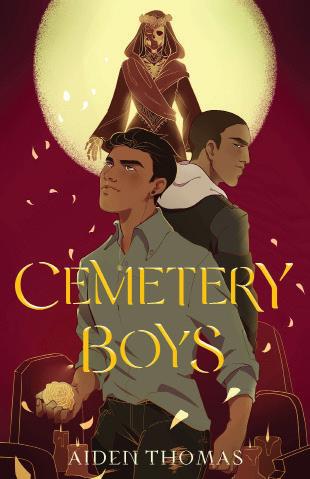
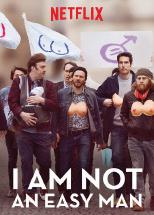 A Review by Elizabeth Andrews
A Review by Elizabeth Andrews

Eléonore Pourriat is a French director who produced the French film “Je ne suis pas un Homme Facile”, which translates to “I Am Not an Easy Man”. This film is about a chauvinistic man, Damien, living in patriarchal society. A chauvinist is a person who displays excessive or prejudiced support for their own cause or group. He discovers what life is like as a woman when he bumps his head, finding himself in an alternate matriarchal universe. In this universe, all stereotypical gender roles reverse. Alexandra, his love interest who appears in both universes, is a chauvinist herself. As Damien experiences sexism first-hand, he begins to understand the impact and pressure women face every day. This movie is the perfect amount of uncomfortable for male audiences and an explanation of the sexism women might experience.
This movie provides plenty of examples of recognizable clichés and normalized stereotypes. In the matriarchal universe, he is being oversexualized, cat-called, and sexually harassed. He wears pants that have the word “hot” printed on the back of them, referring to the “Juicy” pants in the real world. This clothing sexualizes and objectifies Damien, which many women in the matriarchal universe view as an invite to verbally harass him. Another example is that women are the head of the household. Men are caregivers, emotional, and accommodating to women, whereas women dominate men and are strong, confident, and aggressive.
One cliché represented in this film is how one woman is portrayed enjoying a sports game while her husband makes dessert. Another switched cliché pitted onto the men is that women are stereo-
typically CEOs and men are assistants to women, bringing them coffee and setting up their appointments. These representations stand out to the viewer because of how odd and uncomfortable it is to men to see a woman overpowering a man in the workplace. Alexandra is introduced in the patriarchal universe as a woman Damien fantasizes over in a bookstore; however, when the roles are switched, she represents what men can be in the real world.
The switch of stereotypical gender roles makes the audience uncomfortable. The audience views these women in the matriarchal universe taking advantage of and abusing their power in the industries they work in. This reflects the power and manipulation men in similar positions use to get what personally benefits them in the patriarchal universe. This movie teaches that many people do not understand the extent of oppression when their group is the one who is benefitting from the system in place. Creating that uneasy feeling when Pourriat challenges these stereotypical gender norms is what makes this film stand out as an influence in the feminist movement.
“I Am Not an Easy Man” attempts to destroy gender inequality and convey to the audience that gender is just a social construct that was created to keep women “maintained” and “overpowered” and men “in control” and “powerful.” At the end of the film, Damien and Alexandra get into a physical argument, and they both hit their heads. As Alexandra is waking, she is revealed to be in the patriarchal universe. The last shot of the film is of Alexandra walking up to a feminist march with thousands of women protesting. The overall message is that it is difficult to understand what another group endures when you are the oppressor. This movie allows the audience to watch the characters go through major development regarding how they view
gender-based stereotypes and the world in general.
The final universal switch with Alexandra has a significant effect on the message that director Pourriat was trying to convey. The audience gets to view Damien’s experience, as a man, going through what women experience in the matriarchal universe. The audience also views Alexandra’s point of view from a universe where she was on top of a patriarchal world, which is a powerful moment of realization. Overall, I would highly recommend watching this movie to anyone who is interested in feminism and fighting for equal opportunity for all genders. This movie expresses what over half of the entire population of the world can experience, and it is executed beautifully. You can watch “I Am Not an Easy Man” on Netflix.

 A Review by Nicki Parish
A Review by Nicki Parish
Written, directed, and co-produced by Adam McKay, “Don’t look Up” is a satirical dramatic comedy Netflix original film released in December of 2021 that follows two astronomers as they discover a planet-killing comet and try to warn the general public.
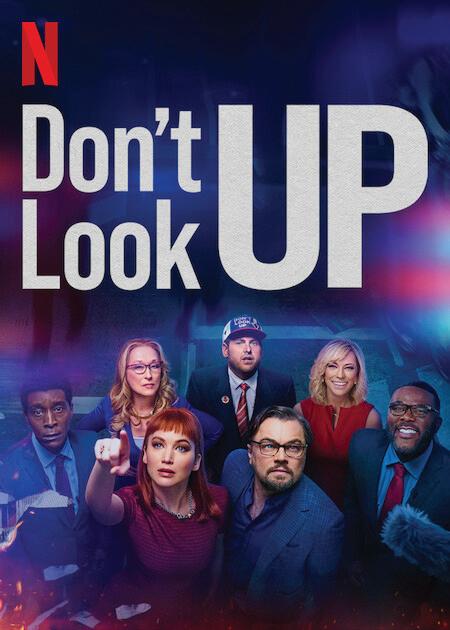
Kate Dibiasky (Jennifer Lawrence), an astronomy graduate student, and her professor Dr. Randall Mindy (Leonardo Dicaprio) embark on a media tour to attempt to save the planet, but ultimately fail. They are not taken seriously, have their argument politicized, and Dr. Mindy loses sight of the task at hand due to his impromptu celebritization. “Don’t Look Up” comments on social media, technology, global warming, celebrity existence, and, in some interpretations, on the COVID-19 pandemic. This film is a prime example of how, regardless of intentions, art doesn’t always do what we think it will and context can change the audience’s interpretation. Art—in this instance, film—is ever-changing, and viewers will always relate to it differently based on their own circumstances.
While “Don’t Look Up” is a satire and although the events that occur are dramatized for entertainment’s sake, the circumstances within the film reflect real events in our society. The comet that is hurtling towards Earth in the film represents something that scientists have been warning about for years: climate change. Mindy and Dibiasky, the accredited scientists in the film, set out to warn the planet of the dangers that
could ensue if powerful people don’t take action. In the end, the media turns them into a joke, mirroring the response of climate change deniers in the real world to the scientific community calling for action on climate change. While the message about climate change in the film is clear, many reviewers disagree about the effectiveness of the satire; half conclude that the satirical message was thought-provoking and well executed, while the other half think McKay is out of touch with what is considered clever and how to get his audience to care.
While McKay’s vision started with climate change as filming began in pre-pandemic 2019, for many, “Don’t Look Up” had different implications by the time it debuted in 2021. Audiences have also interpreted the comet as a different threat: COVID-19. As the film was released in December 2021, still amid pandemic lockdowns, the context around the film greatly altered its meaning for many viewers. Comet-deniers become anti-vaxxers, promoting any of the many messages discouraging people from getting vaccinated or conspiracy theories about the COVID response. Another aspect of Don’t Look Up that mirrors society’s reactions to COVID-19 is celebrity’s involvement. In the film, Riley Bina (Ariana Grande) puts on a benefit concert that encourages people to believe science and not fall into the trap of false media. Bina reflects many celebrity’s reactions during the onset of COVID-19 as many of them encouraged fans to stay inside and social distance on their social media accounts. Additionally, over a hundred celebrities, including Dolly Parton, Jennifer Aniston, Dwayne
“The Rock” Johnson, and so many others, promoted safety during COVID-19 by sharing photos of themselves getting vaccinated. While the scene and characters are obviously dramatized for campy, satirical effect, the film effectively comments on the influence celebrity involvement can have in modern politics and social issues.
Regardless of whether the film is about climate change or COVID, the message of “Don’t Look Up” rings true: believe science. The film provides a goofy, yet effective critique of science deniers and is a prime example of how even in the face of change, art can channel core truths.
While “Don’t Look Up” is a satire and although the events that occur are dramatized for entertainment’s sake, the circumstances within the film reflect real events in our society.
to return to the types of content featured in some of the earlier editions. For the past several years, Attune has focused more exclusively on nonfiction articles and essays. This was not always the case. I came across numerous opinion articles, anonymous personal stories, poetry, and more when looking through old editions. These types of contributions gave Attune a more personal feel to me and made the topics addressed more real and relevant to the campus I am a part of. Currently, the Women’s Center is seeking creative non-fiction, fiction, poetry, photography, art, and more in addition to the non-fiction articles and essays we have been used to in recent years. With diverse submission options this semester, I am excited to see what future editions of Attune will look like!
Attune has given the campus community a place to share their ideas and call attention to issues they are passionate about for almost 30 years now. I think Attune is a good example of how a small action, like writing an article, can make a big impact on our campus community. So many people have been involved in this publication produced by our small office, and many more are reached through the hundreds of Attunes picked up each semester by students, staff, and members of the community. By submitting to Attune, we can all spread awareness about important issues and call for change to make a difference on our campus.
was a guest judge. The presence of such high-profile figures in national politics on the show lends immense credibility and support to the LGBTQIA+ community and the artform of drag.
Since its premiere in 2009, RuPaul’s Drag Race has helped increase drag’s visibility in America and increase America’s comfortability with drag, leading to many more local drag shows nationwide. Tech, in fact, has its own drag shows that would occur monthly at the Backdoor Playhouse, co-sponsored by Lambda GSA, the Tech Players, and UC Pride. But, due to conservative politician Robby Starbuck’s weaponizing of drag’s political nature, the LGBTQIA+ community has been put at risk.
Drag as an art form transcends gender boundaries and binaries, which is why it has always been weaponized by the conservative right. These political attacks give drag artists and the LGBTQIA+ community at large no choice but to be politically active to protect their rights, and oftentimes their very lives. Although drag may be just an artform, in the reality we live in, all art has a message, and drag’s message is a political one.
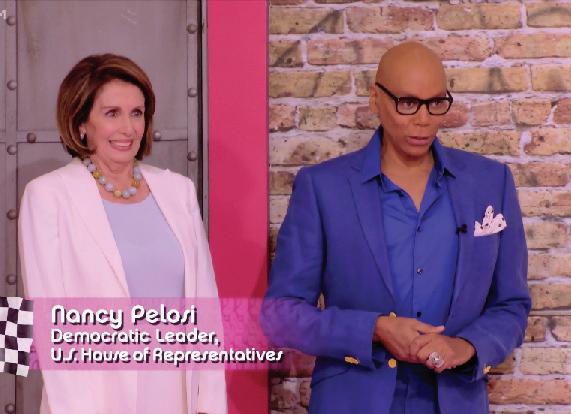
Editors
Nicki Parish, Editor
Women’s Center Staff
Helen Hunt, Ph.D., Director
Jordan Dicey, Admin, Associate
Lena Alboro
Elizabeth Andrews
Anna Gatlin
Millie Hall
Heath Howard
Lilly Davis
Aislynn Martin
Rachel Pearson
Paige Powers
Contact Us womenscenter@tntech.edu
TnTech Women’s Center
Instagram @tntechwomenscenter
Office Hours
RUC 339
Monday - Friday 8 a.m. - noon & 1 p.m. - 4:30 p.m. Visit our website tntech.edu/women
Roaden University Center (RUC) 339 1000 North Dixie Ave. Cookeville, TN 38505
Counseling Center
931-372-3331
tntech.edu/counsel
Eagle Eye Crisis Hotline
855-206-8997*
Health Services
931-372-3320 tntech.edu/healthservices
Food Pantry
tntech.edu/volunteer/pantry.php
Tech ASPIRES
931-372-6566 or Eagle Eye Hotline
Title IX tntech.edu/titleix titleix@tntech.edu
Campus Police
931-372-3234
tntech.edu/police
Women’s Center tntech.edu/women
Multicultural Affairs tntech.edu/multicultural-affairs
Genesis House Office: 931-525-1637
Hotline: 1-800-707-5197* genesishouseinc.com
Upper Cumberland Family Justice Center 931-528-1512 or 866-704-1080 ucfamilyjusticecenter.org
Cookeville Legal Aid Society 931-528-7436 las.org
National Suicide Prevention Lifeline 800-273-8255*
National Sexual Assault Hotline 800-656-4673*
National Domestic Violence Hotline 800-799-7233*

thehotline.org

VictimConnect Resource Center 855-484-2846
We can help you navigate resources! Call the Women’s Center: 931-372-3850
Message us on social media: @tntechwomenscenter